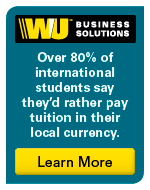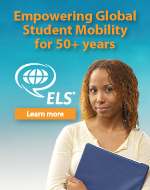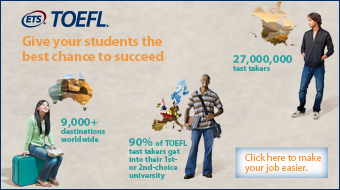
| IIE Home | Membership | Publications | Open Doors | Contact Us | Subscribe |
|
||
|
News
Submission Deadline: November 10, 2014
A prosperous society depends on a thriving academic community. When higher education is threatened, a country’s development can be severely impaired, with lasting consequences for itself and the rest of the world. In the past few years, teaching and learning around the world have been disrupted by a number of emergencies—a Tsunami in Japan, a typhoon in the Philippines, and today, an Ebola outbreak in Liberia. In addition, ongoing conflict in Syria and Iraq now threatens the existence a once-thriving higher education sector in both countries, and it has produced a refugee population with an unprecedented number of highly educated students and scholars.
The purpose of this issue of the IIENetworker magazine is to highlight efforts by universities and other institutions to respond to and help support higher education communities and academics in crisis-affected areas. Articles will describe these efforts, share lessons learned, and explore novel challenges posed by current global developments. Submissions should discuss one or more of the following topics:
We encourage contributions from professionals outside the strictly higher education structure, including those in the private and government sectors, as well as contributions from outside the United States. Articles should be approximately 1200 words.
Please let us know as soon as possible if you plan to submit. The submission deadline for completed articles is November 10, 2014. You will be notified as soon as a publication decision is made.
If you are interested in submitting an article for the spring 2014 issue of IIENetworker, please address all inquiries to Jon Grosh at jgrosh@iie.org. For more information on IIENetworker, please visit: www.iie.org/iienetworker.
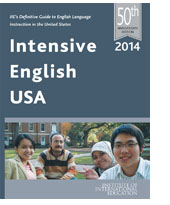 The 2014 edition of the publication Intensive English USA is now available for purchase. This reference directory offers over 500 intensive English language programs and courses offered by accredited U.S. higher education institutions and language schools. The book describes programs that prepare people from other nations for U.S. higher education and professional employment. The 2014 edition of the publication Intensive English USA is now available for purchase. This reference directory offers over 500 intensive English language programs and courses offered by accredited U.S. higher education institutions and language schools. The book describes programs that prepare people from other nations for U.S. higher education and professional employment.This edition marks the 50th print anniversary of Intensive English USA. Throughout its publication, this directory has been the standard IEP resource for U.S. educational advising centers worldwide including education ministries, embassies, exchange agencies, universities, and other organizations that sponsor international students in the United States.
Each English language program listing includes detailed information on: accreditation; program contact information; term lengths and start dates; costs; eligibility; program, class, and faculty size; student world area origins; student services; university admission requirements; availability of language labs and computer-assisted instruction.
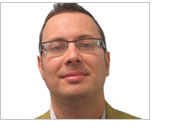 Emil Levy, Program Manager of the Bulgarian Young Leaders Program at IIE, shares the initial results of the Alcoa Foundation’s Global Internships for Unemployed Youth program managed by IIE. The program seeks to reduce global unemployment through youth workforce development in the manufacturing sector. "Despite the challenges and obstacles manufacturers and youth face, paid internships in the field of manufacturing for unemployed and underemployed youth seems to be meeting a need for them and the marketplace," writes Levy. Emil Levy, Program Manager of the Bulgarian Young Leaders Program at IIE, shares the initial results of the Alcoa Foundation’s Global Internships for Unemployed Youth program managed by IIE. The program seeks to reduce global unemployment through youth workforce development in the manufacturing sector. "Despite the challenges and obstacles manufacturers and youth face, paid internships in the field of manufacturing for unemployed and underemployed youth seems to be meeting a need for them and the marketplace," writes Levy.ICEF Monitor reports on a decision by Japan’s Education Ministry to help finance the globalization and personnel training programs of 37 universities in the country. The decision supports the goal set by the Japanese government to have at least 10 Japanese universities in the list of the world’s top 100 and to build international enrolment in the country to 300,000 students by 2020.
Wachira Kigotho shares highlights in University World News of a new report published by the World Bank and Elsevier on research output in Sub-Saharan Africa. According to the report, it has soared over the last 10 years in part because of "persistent support and funding from development partners as well as collaboration with top global universities on health issues," writes Kigotho.
Conferences
The Institute of International Education (IIE) will be hosting two webinar sessions providing information on the newly launched Confucius China Studies Program Joint Research Ph.D. Fellowship (CCSP), which is accepting applications through January 29, 2015 for awards beginning in the fall 2015. The CCSP Fellowship offers funding for doctoral students at U.S. institutions who wish to pursue research and continue their doctoral work in China for a period of six months to up to two years.
There will be two webinar sessions, and each session will cover the same information, including academic and research areas, tips on applying, application components, award details and benefits, and the application and award timeline. We will also provide participants with an opportunity to ask questions.
Register for Webinar 1: October 16, 2014, 2:00–3:00 PM EST
Register for Webinar 2: November 19, 2014, 3:00–4:00 PM EST
October 15, 2014, 2:00–3:30 PM ET | Registration and Webinar Details
Join ACE's Center for Internationalization and Global Engagement and expert panelists for an interactive discussion of international students in the United States. In this webinar, leading experts will present innovative and in-depth analyses of international student data from a variety of sources and explore its implications for institutions' recruitment strategies and on-campus support practices. Topics include home countries and U.S. destinations, funding sources, academic preparation, and decision factors for selecting a U.S. institution.
Expert panelists include:
This event is sponsored by ELS Educational Services, Inc.
November 12–15, 2014 | Arlington, VA
The International Student Exchange Programs (ISEP) invites registrants for its 2014 conference, to be held November 12-15 in Arlington VA. The theme for this year's conference—The ISEP Network: Immersion, Sustainability, Empowerment, Partnership—explores current events and issues affecting international education and student mobility. It will include session strands for university exchange/study abroad staff, Senior International Officers, and institutional leaders. Join representatives from over 31 countries and as many U.S. states to discuss the latest trends and participate in workshops on Global Citizenship and International Risk Management.
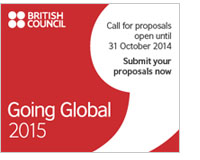 June 1-2, 2015 | London June 1-2, 2015 | LondonProposal Deadline: October 31, 2014 | Proposal and Conference Details
Going Global is an annual conference hosted by the British Council, which provides a forum for world leaders in education to network, debate international tertiary education issues and challenges, and to discuss creative, collaborative solutions. The conference welcomes leaders and practitioners within the tertiary education sector as well as education ministers, journalists, policy makers, and industry representatives. Going Global 2015 will take place at the Queen Elizabeth II Conference Centre, London. The theme for this year is Connecting Cultures, Forging Futures. To contribute your unique perspective on these themes, submit a proposal before the deadline of Friday, October, 31, 2014.
If you have any questions please contact Going.Global@britishcouncil.org.
Partnerships
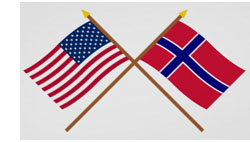 Application Deadline: October 15, 2014 | Application and Program Details Application Deadline: October 15, 2014 | Application and Program DetailsThe Institute of International Education (IIE) and the Norwegian Centre for International Cooperation in Education (SIU) invite U.S. higher education institutions to apply to participate in the International Academic Partnership Program (IAPP) with Norway, which seeks to increase the number of international partnerships between higher education institutions in the U.S. and in Norway. Over the course of the six month program, IAPP will engage a select group of U.S. higher education institutions in training activities focused on implementing strategic partnerships with higher education institutions in Norway, with a special emphasis on the fields of energy and the environment. Past IAPP participants have increased faculty exchanges, implemented strategic partnership plans, and expanded study abroad offerings. IIE and SIU will select approximately 10 U.S. institutions of higher education to participate in the program.
Thanks to the generous support of SIU, all in-country costs for the study tour to Norway will be covered for two representatives from each participating U.S. institution.
Program Information:
Application Deadline: October 15, 2014
Program Cycle: November 2014–June 2015
Study Tour to Norway: April 2015
Program Cost: $6,000 (All in-country costs for two representatives on the study tour are included in the reduced program fee.)
For more information or to download the IAPP application, visit www.iie.org/iapp.
UNESCO Bangkok reported the launch celebration of Myanmar’s first Centre of Excellence for Business Skills Development (CEBSD): "The CEBSD is the result of an innovative public-private partnership, the first of its kind in Myanmar, which aims to improve employment prospects for youth in Myanmar by offering targeted courses and training in business and employability skills, career counselling, and networking opportunities."
Study Abroad
Deadline: November 9, 2014 | Take Survey Now
As part of IIE’s Generation Study Abroad initiative to increase study abroad participation, IIE is exploring the diversity currently represented across study abroad programs. Although IIE’s Open Doors report shows an overall increase in the number of U.S. students participating in study abroad over the past few decades, doubling that number by 2020 will require greater involvement from underrepresented students and programs. In efforts to increase study abroad access in U.S. higher education, we invite you to share responses to the survey questions. Your answers will assist in further developing tools to measure diversity of students in these programs.
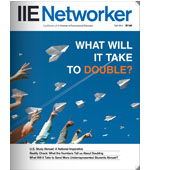 In her article in the newly released IIENetworker magazine, IIE’s Christine Farrugia takes a look at the numbers to determine the feasibility of doubling U.S. study abroad and to identify promising areas of growth. "To achieve this ambitious goal, the number of U.S. students traveling abroad for an educational experience will need to increase 12.5 percent each year during the next five years," writes Farrugia. To get there, she recommends four areas of focus. In her article in the newly released IIENetworker magazine, IIE’s Christine Farrugia takes a look at the numbers to determine the feasibility of doubling U.S. study abroad and to identify promising areas of growth. "To achieve this ambitious goal, the number of U.S. students traveling abroad for an educational experience will need to increase 12.5 percent each year during the next five years," writes Farrugia. To get there, she recommends four areas of focus.Five U.S. institutions will pilot a new assessment tool developed to evaluate practices within education abroad offices pertaining to access, diversity, and inclusion. The Access, Inclusion, and Diversity in International Education Scorecard (A.I.D. Scorecard) serves as a set of guidelines for diversity and inclusion good practices in education abroad established to encourage greater access to education abroad for diverse and underrepresented students.
|
| www.iie.org/iienetwork • Member website of the Institute of International Education © 2025 Institute of International Education. All rights reserved. |
